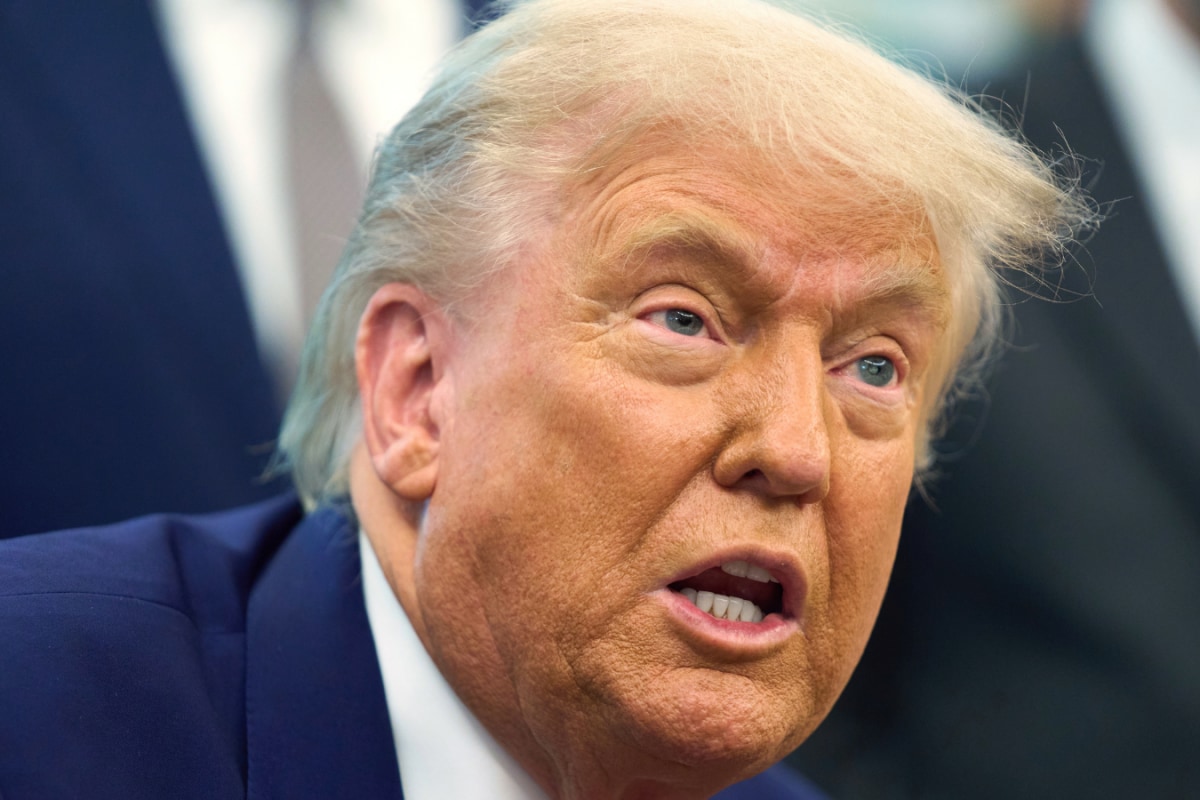

In the wake of escalating tensions between Iran and Israel, former U.S. President Donald Trump has once again inserted himself into the international arena, urging both nations to "make a deal" and reiterating his claim of having played a pivotal role in the ceasefire between India and Pakistan.
Trump's comments come as Israel has launched devastating strikes against Iran, targeting its nuclear program and military infrastructure, prompting retaliatory missile strikes from Iran. The situation has sparked concerns of a broader regional conflict, with the U.S. shifting military resources to the Middle East to guard against potential attacks.
Taking to his social media platform, Truth Social, Trump stated that the U.S. had "nothing to do with" the recent attacks on Iran. However, he also warned Iran against any retaliatory actions targeting the U.S., threatening "the full strength and might of the U.S. Armed Forces" if attacked. Simultaneously, he expressed optimism about brokering a deal between Iran and Israel to end the "bloody conflict." He has been steadfast in his support of Israel’s actions, calling the attacks “excellent.” He also stated that the U.S. was fully aware that Israel would attack.
Trump's renewed call for a deal between Iran and Israel follows a pattern of his attempts to engage in diplomacy with Iran. Even as Israel commenced bombing Iran, Trump stated that his administration was committed to diplomacy with Tehran. However, critics, like Trita Parsi, suggest that Trump's demands for Iran to end uranium enrichment led to a deadlock in previous talks, potentially paving the way for the recent escalation.
Adding another layer to his pronouncements, Trump has revived his claim of having facilitated a ceasefire between India and Pakistan. This assertion, however, has been met with skepticism and direct contradiction from Indian officials.
In May 2025, Trump stated his involvement in bringing India and Pakistan back from the brink of nuclear war. He attributed the de-escalation to his intervention, suggesting that the two nations were on the verge of a nuclear exchange. However, India's External Affairs Minister S Jaishankar refuted Trump's claim, stating that the ceasefire was directly negotiated between the militaries of the two countries. Jaishankar clarified that Pakistan had expressed its readiness to stop firing, leading to the agreement.
Despite India's denial, the U.S. government has maintained its stance, with the U.S. Commerce Secretary Howard Lutnick stating in a court submission that the ceasefire was "only achieved after President Trump interceded and offered both nations trading access with the United States to avert a full-scale war." This claim was made in defense against a lawsuit challenging the tariffs imposed by Trump on imports.
The conflicting narratives surrounding Trump's role in the India-Pakistan ceasefire highlight the complexities of international diplomacy and the potential for differing interpretations of events. While Trump portrays himself as a key mediator, Indian officials maintain that the agreement was reached bilaterally, without any third-party involvement.